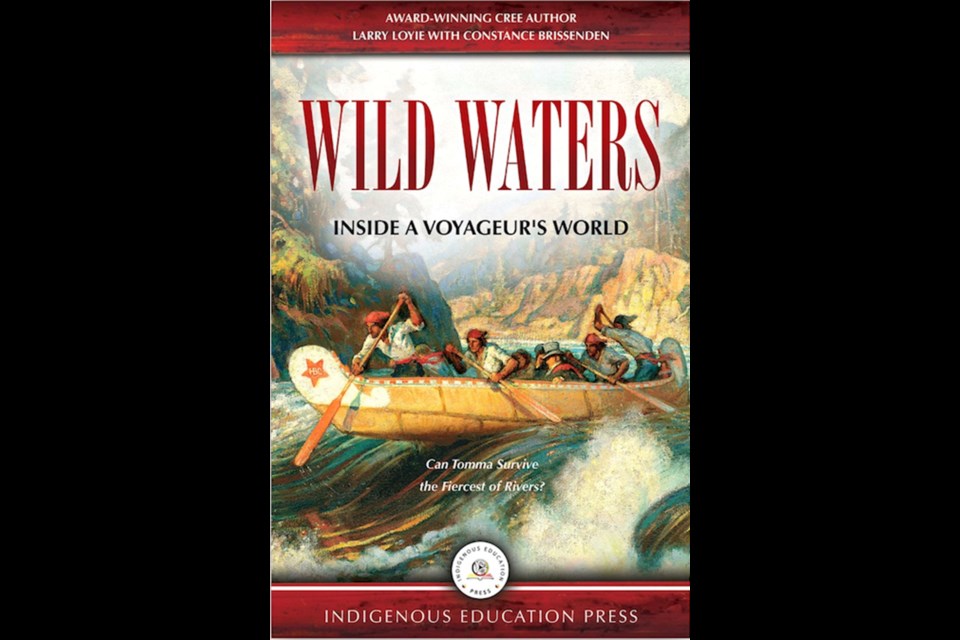DETAILS
Wild Waters: Inside a Voyageur's World
by Larry Loyie (with Constance Brissendon)
140 pages
$19.95 from GoodMinds.com
Welcome to the story of the Indigenous voyageur: the intrepid transporter of weighty loads of fur across land and across raging rapids in a sturdy birch bark canoe. The work was tough – brutal often – and the pay was scant, the glory even more so. History would be kinder than life was during the fur trade for these toughened troops.
When the Europeans came to this land and started that trade, there were many French Canadians who took up the trade under the job description "voyageur." The Indigenous voyageurs didn’t garner the same respect, only getting to be called "paddlers." Their stories didn’t achieve the same renown as their white counterparts; their legend remains untold.
At least, that is, until now. Wild Waters: Inside A Voyageur’s World is the fictionalized version of a non-fiction story. Tomma is based on author Larry Loyie’s four-times great-grandfather. The Haudenosaunee man, along with his uncle and other hard-working Iroquois men, followed the routes of the fur trade from Montreal to the Pacific coast. This country isn’t for the faint of heart, with rough landscape, tough weather, and oh yes – mosquitoes and bears. As if trekking all that distance wasn’t enough, the journey saves one of its toughest battles for one of its last: the Fraser River at a place known as Hell’s Gate. There, the wide river narrows into wild waters, indeed.
The Cree author, a residential school survivor, passed away in 2016, but the research and momentum he built up during his life helped to sustain his partner, author Constance Brissendon, enough to complete the work. What began as a labour of love for Larry Loyie turned into Brissendon’s own passion project: a love letter to her late partner.
She explained what this story meant to him.
"Larry always said that his people – meaning Indigenous people – they made it possible for newcomers to survive in the wilderness that was what is now Canada. They taught them how to travel. They hunted for them. They clothed them with furs, and they showed them the routes, everything … how to fish. They made it possible for the newcomers to survive in whatever climate," she began.
"Then after the fur trade, basically, he would say, ‘they tossed us aside.’"
Loyie wanted to show that the Indigenous voyageurs who have been characterized elsewhere as the mindless "paddlers" were real people, and moreover, they were really intelligent, and really fortuitous. They deserved their stories – their places in history.
"They have been ignored, really, by history, only as caricatures really. He wanted to put humanity into their portrait," she continued.
"You know how when you go into the office and you get all the gossip? That's what he wanted to show as well: that they knew everything. I think in the book, when they're coming down the Fraser and all the people from the different tribes there come out, everybody knew what was going on, but the white people never knew they did. Larry really wanted to show the real people. He was just tired of all the stereotypes."
Wild Waters is one of those high-adventure stories that Loyie developed after finding his ancestor's name in the journals of Chief Trader Archibald McDonald during his 1828 travels along with then governor George Simpson. The book is described as historical fiction that's suitable for young readers from Grades 5 to 12. Consider me young at heart, then, for loving the Jack London-esque descriptions of the action on the northern frontier-scape.




